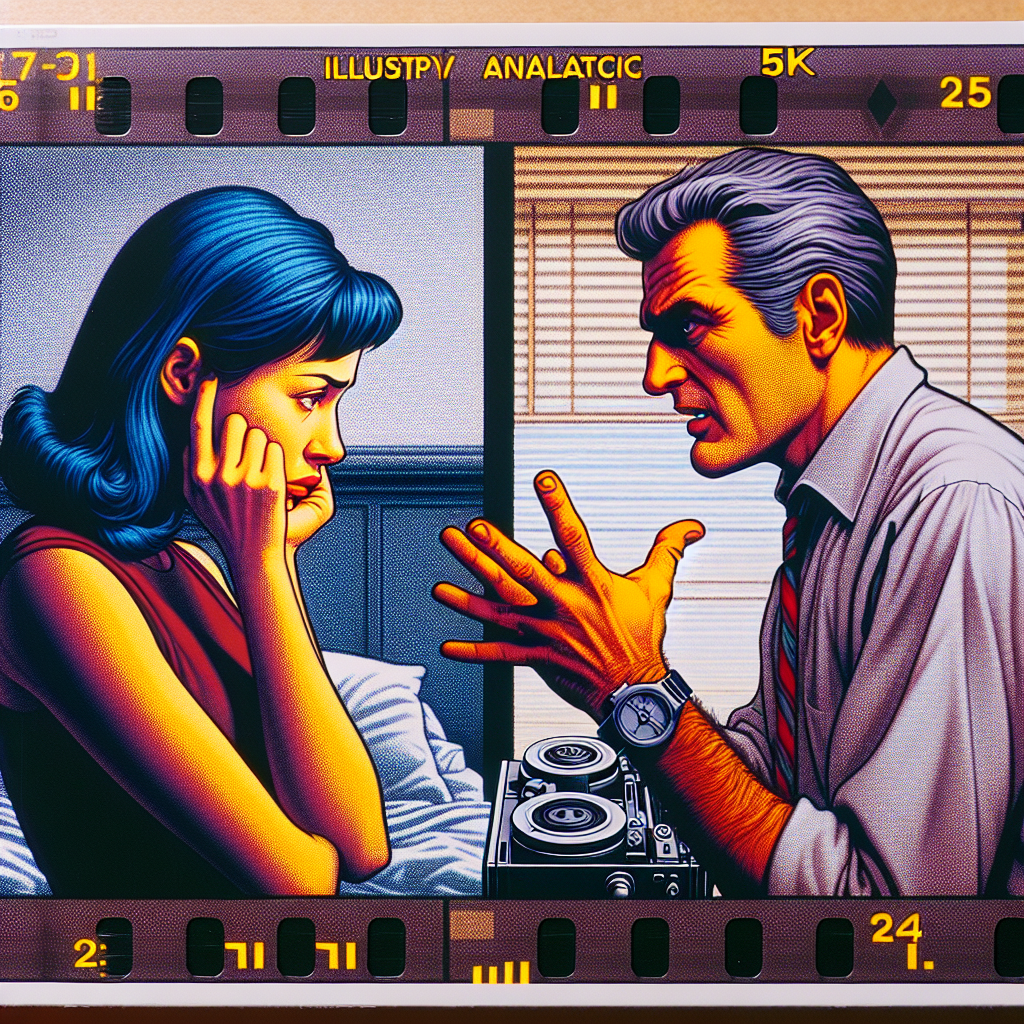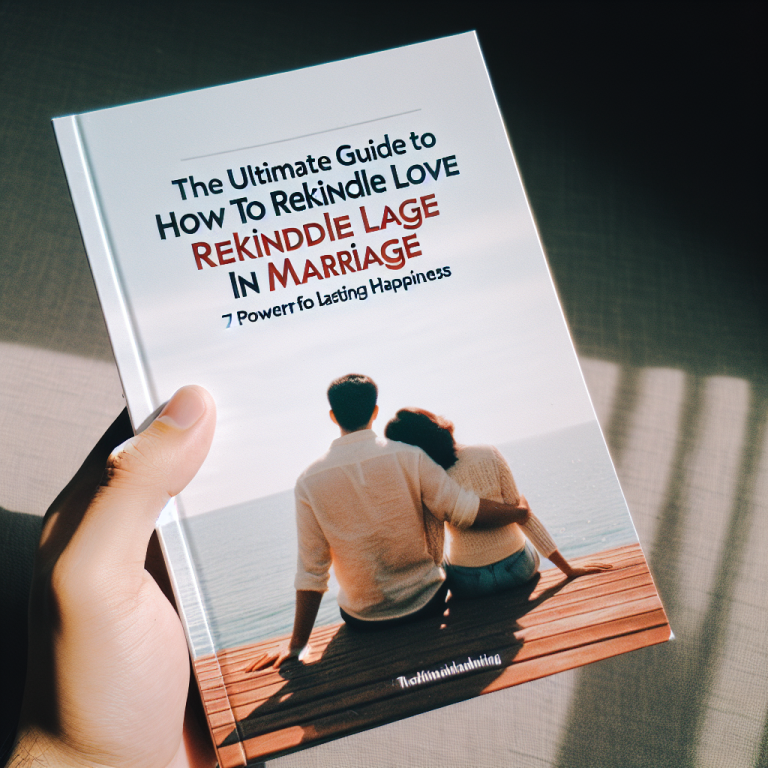Why communication isn’t enough to fix a struggling marriage
Emotion Regulation is Key
Understanding Your Emotions
Let’s get real for a moment. When you’re in a struggling marriage, emotions run high. It’s not just about what you say; it’s about how you feel. Understanding my emotions has been a game-changer. I always thought expressing my feelings was enough, but I quickly realized that managing those emotions is crucial. It’s like trying to steer a ship through a storm—if you can’t control the sails (your emotions), you’re destined to crash.
Invest some time in identifying what triggers your emotions. Is it certain words, actions, or even silences? Knowing these triggers helps you maintain control during heated discussions. For me, recognizing when I start to feel defensive has been a huge step towards managing the conversation better.
Once you identify your emotions, work on articulating them without blame. Instead of shouting, “You never listen!” I’ve found it much more effective to say, “I feel unheard when…” This approach not only lowers the temperature of the argument but also paves the way for more constructive dialogue.
Managing Partner’s Emotions
While understanding your emotions is one side of the coin, the other is being attuned to your partner’s feelings. This can be tricky because we often assume our partners feel the same way we do. But here’s the truth: they may not. Once, I was convinced my spouse was upset about a disagreement. But when I asked, I found out they were just overwhelmed from work. Being present and acknowledging your partner’s emotional state can lead to a deeper connection.
Try asking open-ended questions during quieter moments. A simple, “How are you feeling about everything?” can make wonders happen. This openness demonstrates your willingness to listen and helps to create an environment where both partners feel safe to express themselves.
In moments of high tension, aim to soothe rather than escalate. I remember a time when my partner and I were arguing, and I decided to take a deep breath and remind them that we’re a team. That little reminder shifted the focus from the argument to our commitment to each other.
Developing Emotional Intelligence
If there’s one skill that can help a struggling marriage more than communication alone, it’s emotional intelligence. Learning how to read non-verbal cues can be incredibly powerful. Pay attention to body language, tone of voice, and even silences. Every little thing communicates something, and sometimes what’s left unsaid speaks the loudest.
Books and courses on emotional intelligence can be eye-opening. I personally dove into a couple of resources that have not only enriched my understanding but also my relationship. The more you know about emotional dynamics, the better you can navigate conflicts.
Lastly, let’s talk about empathy. Putting yourself in your partner’s shoes isn’t always easy, but it’s essential. When something bothers them, actively trying to understand why can pave the way for compromise and connection.
Action Beyond Words
Putting Words into Actions
We all know that talk is cheap. It’s an unfortunate reality, but what matters is what you actually do, not what you say. I remember saying, “I’ll help more around the house,” but until I actually did that, my partner didn’t feel any less overwhelmed. Actions really do speak louder than words.
To make a change, I started by doing little things daily. Whether it was washing the dishes, picking up groceries, or just giving my partner a break by taking the kids for a quick outing, these actions showed my commitment. Trust me, those small gestures added up to a more harmonious household.
Planning special dates or setting aside time for one another is another great way to show you care beyond mere words. Life gets busy, but remembering to be proactive about quality time can be a big step in nurturing your bond.
Being Accountable
Accountability is another vital piece of the puzzle. When you’re in a committed relationship, taking ownership of your actions is key to rebuilding trust and respect. When I dropped the ball—like forgetting the anniversary or saying something hurtful—I learned to admit it and sincerely apologize.
The art of accountability involves more than just saying “I’m sorry.” It’s about showing your partner that you recognize your mistakes and are taking tangible steps to improve. Whether that means setting reminders for important dates or just actively recognizing when you’ve hurt their feelings, your partner will appreciate your efforts.
It’s also crucial to set up check-ins where both partners hold each other accountable for their contributions to the relationship. This creates a mutual responsibility that strengthens the bond instead of creating rifts.
Consistent Effort and Growth
This isn’t a one-time fix; it’s about consistent effort. I’ve learned that relationships, much like a garden, need regular maintenance. We can’t just plant the seeds of love and walk away. Instead, we need to tend to them regularly with care and attention.
Investing in your relationship by checking in and discussing growth areas can make a significant difference. Twice a year, I like to sit down with my partner and discuss what’s working and what isn’t. It might feel uncomfortable initially, but this process has helped us align on our goals and expectations.
As you grow as individuals, your relationship should evolve as well. Embrace the changes and commit to growing together. Remember, it’s not about perfection; it’s about progress and finding joy in the journey.
Seek Professional Guidance
Therapy and Counseling
There’s no shame in seeking help. Sometimes, we need fresh perspectives, and that’s where marriage counseling comes into play. I was skeptical at first, but finding a therapist who specialized in marriage issues changed everything. It’s like having a guide on a treacherous mountain—you can navigate the terrain more easily with a seasoned professional by your side.
Therapists can help you both understand unhealthy patterns in your communication that you might not see. They’ve seen it all and can provide guidance tailored to your specific struggles. Having an unbiased third party can take the heat out of discussions, allowing you both to start healing.
Some couples benefit from group therapy or workshops. Connecting with others who are going through similar issues can remind you that you’re not alone in this journey. Being part of a community can be immensely reassuring.
Creating a Safe Space
Another major benefit of therapy can be the safe space it provides to discuss sensitive topics. It’s often difficult to broach certain subjects without escalating conflicts. A therapist can facilitate these discussions, helping both partners articulate their feelings in a healthy way.
In therapy, you learn and practice new communication techniques that can be applied to everyday situations, making it easier at home. There’s immense value in developing these skills in a controlled environment before bringing them into your relationship.
It’s also crucial to create a safe space in your relationship, even outside of therapy. Being able to express feelings honestly without fear of judgement goes a long way. Having a safe foundation where both partners can open up lays the groundwork for lasting change.
Long-Term Commitment to Improvement
The bottom line? Healing and strengthening a marriage takes time. When I embarked on this journey, I struggled with the idea that things could get better overnight. But it’s about commitment to growth, new habits, and ongoing efforts. Celebrate small victories, and don’t be too hard on yourselves when you stumble.
A relationship is like riding a bike—you will hit bumps in the road, but keeping your eyes on the destination will help you find balance. Embrace the journey, communicate openly, and continue working on yourselves to propel your marriage forward.
As long as both partners are dedicated to improving and supporting one another, your marriage has a fighting chance. After all, it’s all about teamwork!
Frequently Asked Questions
1. Can communication really be harmful in a marriage?
Absolutely! If communication is ineffective or leads to misunderstanding, it can create more problems. It’s about how we communicate, not just the act of communicating.
2. Why is emotional intelligence important in a marriage?
Emotional intelligence helps partners understand and manage emotions effectively. It fosters empathy and deeper connections, critical for a healthy relationship.
3. How do I navigate accountability with my partner?
Being accountable involves owning your actions and taking responsibility. Regular check-ins and being open about mistakes can build trust over time.
4. What role does professional help play in marriage recovery?
Professional help offers a neutral perspective and experiences in addressing relationships. Therapists provide tools and insights that can strengthen your connection.
5. Is it ever too late to save a marriage?
It’s never too late to work on a marriage if both partners are willing to put in the effort. Change takes commitment, but improvement is always possible.










